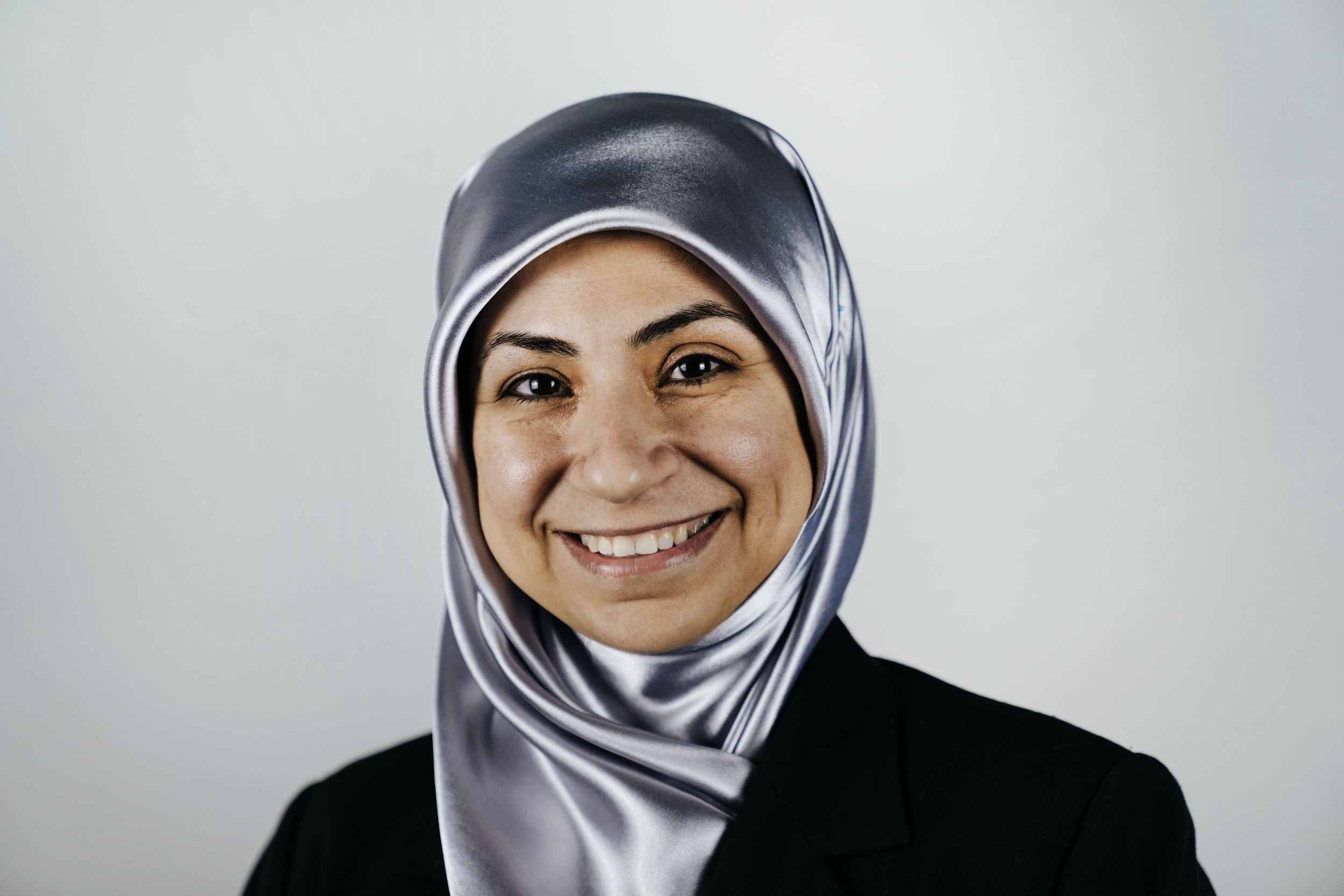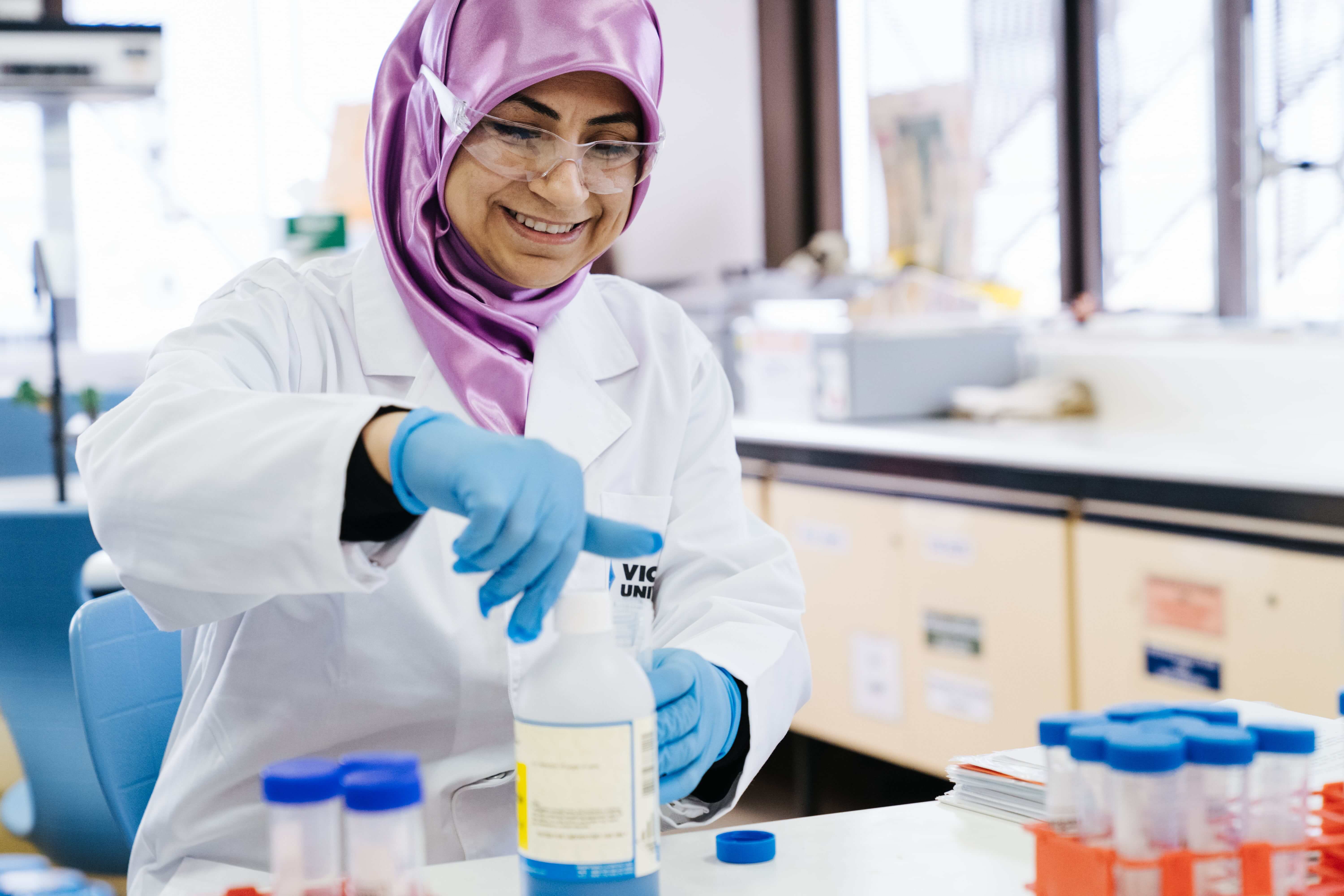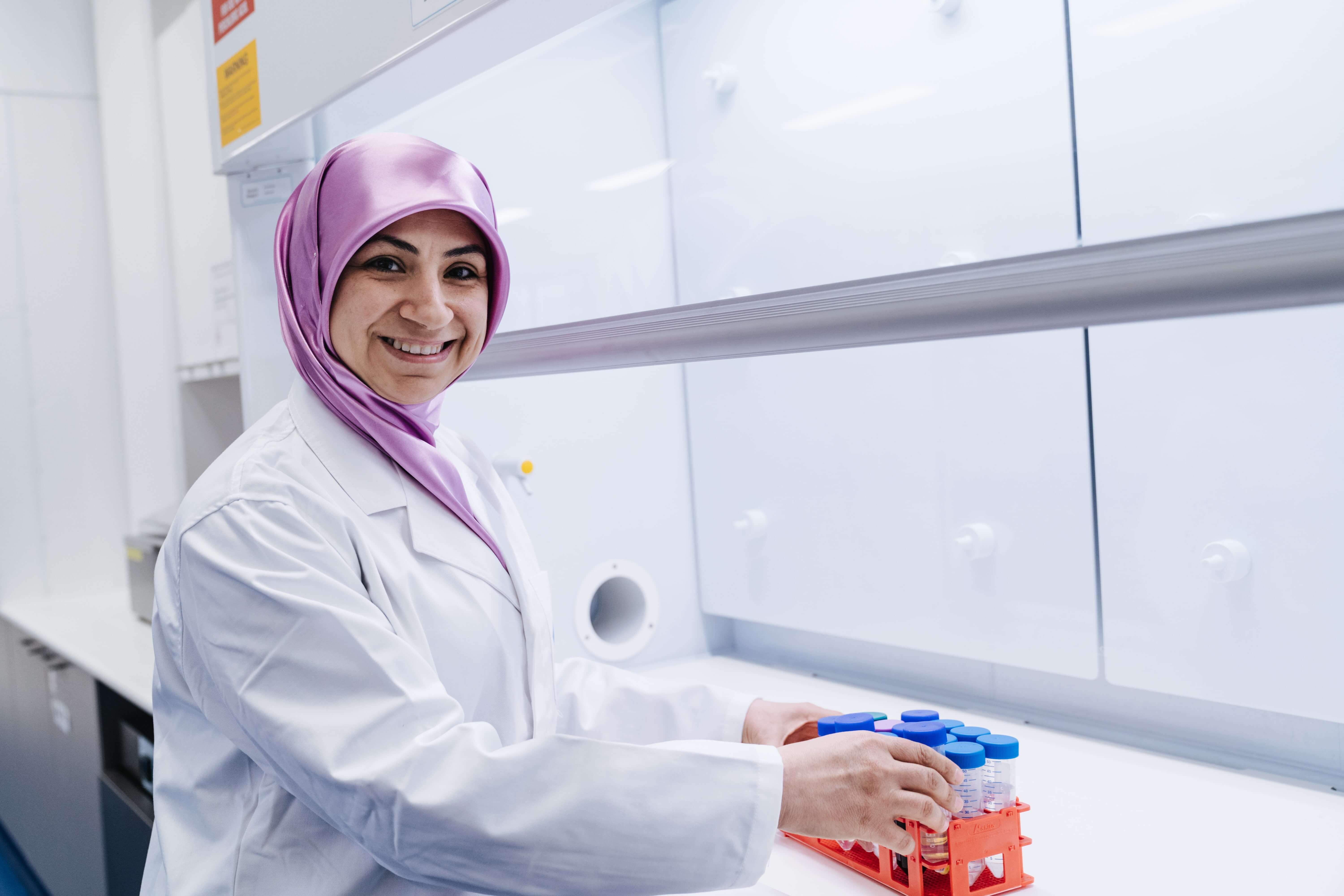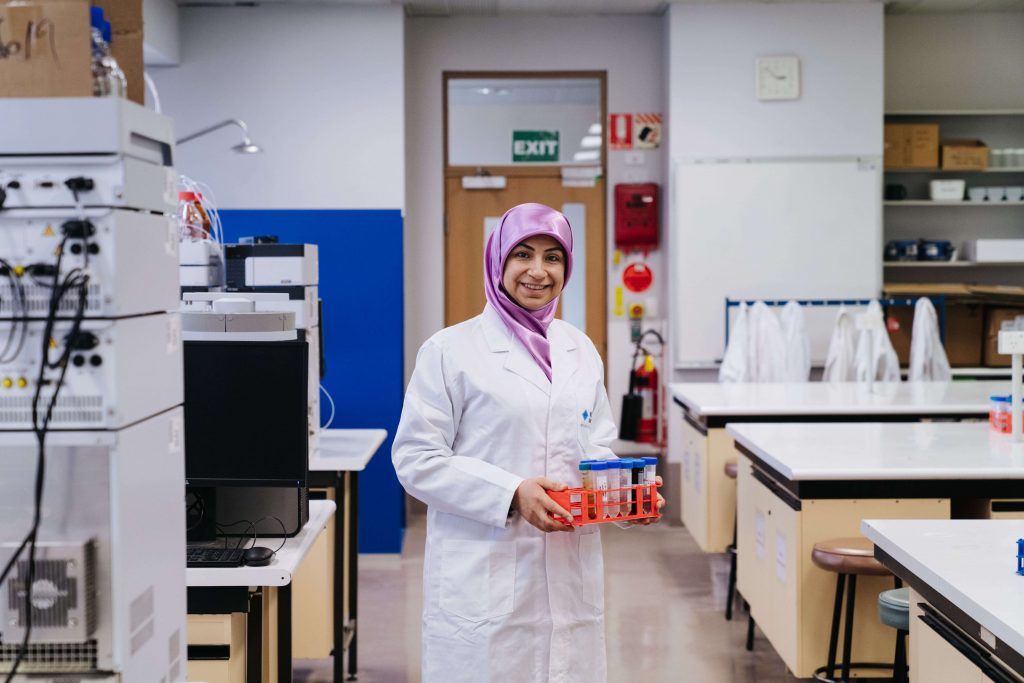
Nowadays I love smiling. I want to smile at everyone that I meet. I think smiling at people is probably my favourite part of Aussie culture.
We were the first muslim family many of the locals had seen. And they were the first Australians we had seen. I was scared during those first few days.
Cobram is a small town on the Murray River near the border between Victoria and New South Wales. When I walked the streets of my new home people smiled at me. People who I had never met, would look me in the eye and give me a friendly grin.
Nowadays I love smiling. I want to smile at everyone that I meet. I think smiling at people is probably my favourite part of Aussie culture.
For me, especially as a muslim woman wearing a hijab, I think that smiling is a way to show I am happy and friendly. I want people to know that I am muslim. I want people to see a muslim who they don’t get to see through the media.

After living in Cobram for a few years with my two kids, I started feeling settled. But that feeling of normalcy soon turned to restlessness. Now that I felt safe, and even comfortable, Australia represented opportunity. A chance to become the person I had dreamed I would as a child: to become a doctor and help others.
It had been 12 years since I had been in a classroom, or more accurately, inside the tiny caravan school at the refugee camp that I grew up in. I couldn’t read or write in English. So I started to learn via distance education for a few months. Then I decided to move to Melbourne to begin working on my VCE with minimum English literacy.
When I told people in Cobram that I was leaving because I was going to become a doctor, they told me that I was delusional. No one believed that I could do it. And I am really glad for their words of discouragement. They filled me a determination to prove them wrong.

I was ready to achieve. But after a few weeks in those high school classes, even my teachers were doubting that I could pass. My English was still very poor. For chemistry, math and biology I had to translate every single word of the textbooks. On top of that, I had to take English literature classes.
I worked twelve hours a day, everyday. And I had two kids to look after. It was crazy.
For homework over the break, we had to read a 400-page novel by Andrew McGahan. When my English teacher asked the class who had finished reading the book, I was the only one who raised their hand. I was crazy.
I passed. But even though I had my high school certificate in my hands, I was still so far from my dream. No university wanted me. My marks were nothing incredible, but they couldn’t see how far I had come. Fortunately, I was offered a place at Victoria University in their Foundations course. The teachers that I had there were so supportive. I gave it everything I had. Out of the 200 students, I finished on top of the class.

Finally, I was able to enrol in a Bachelor of Science. As a way to say thank you to the University, I volunteered my time to teach other students in the Foundation course.
Through that voluntary work I started thinking that helping others to achieve their dream was maybe even more rewarding than achieving my own. Doctors might be able to cure your body, but teachers can cure your soul. After graduating my Bachelor of Science with a high distinction and a Dean’s Scholar award, I embarked upon my PhD and started working at the university tutoring classes.
Now I am working as a lecturer, and I am training biomedical students on their way to becoming doctors.
I still worry about what people think when they see me on the street. They don’t know who I am. There are good and bad people in every culture. We just need to get to know each other. We can’t make assumptions from what we hear or see in the media. This is why I smile at everyone that I meet.
Despite the challenges and people not ready to believe in me, I am achieving my dream everyday. At the end of this year I will be awarded a doctorate for my chemical science work in microencapsulation of natural antimicrobial agents.
I am proud to be Australian, and I am proud to wear a hijab. I am proud of what I have achieved, for myself, my children and for my community.

If you empathise with Ghofran’s story and you want to find out tips and ways to make the workforce more welcoming for refugees, fill out the form and download the resource.
You can also get in touch through the form by leaving a message of welcome for Ghofran.
The ASRC acknowledges Aboriginal and Torres Strait Islander peoples as the First Peoples and Traditional Custodians of the lands where we live, learn, and work every day.
We pay our respects to them, their customs, their culture, and Elders past and present. We recognise that First Nations' sovereignty and lands were never ceded. This land always was and always will be Aboriginal land.
As part of our commitment to First Nations justice, we support Treaty for Victoria. We pay the rent to Traditional Owners through www.paytherent.net.au

Connect with us
Need help from the ASRC? Call 03 9326 6066 or visit us: Mon-Tue-Thur-Fri 10am -4pm. Closed on Wednesdays.